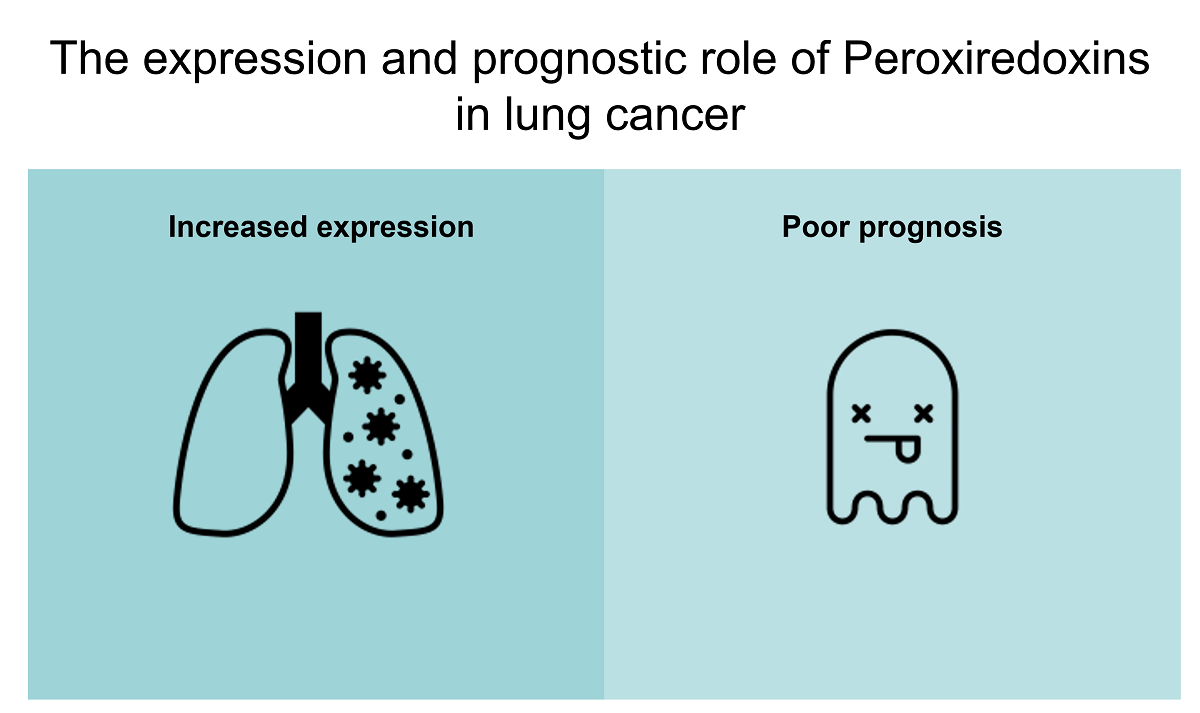Background: Peroxiredoxins (Prxs) comprise antioxidant factors that are widely found in prokaryotes and eukaryotes. Abnormal expression of Prxs is closely related to tumorigenesis. Methods: This study examined the prognostic value and expression of Prxs in lung cancer by Human Protein Atlas (HPA), Gene Expression Profiling Interactive Analysis (GEPIA), UALCAN, Kaplan-Meier Plotter, cBioPortal and Functional Enrichment Analysis Tool (FunRich) databases. Results: We found that Prx1/2/3/4/5 were overexpressed in both lung squamous cell carcinoma (LUSC) and lung adenocarcinoma (LUAD) relative to normal lung cells. However, the expression level of Prx6 was lower in LUAD and higher in LUSC than normal lung cells. The level of Prx3 and Prx6 were associated with pathological stage. Prognostic analysis showed that elevated Prx1 and Prx2 expression were correlated with low Overall Survival (OS), whereas high Prx5 and Prx6 expression level predicted high OS. Conclusions: Our results effectively revealed the level of Prxs in lung cancer and its influence on the prognosis of lung carcinoma, contributing to the study of the role of Prxs in tumorigenesis.

